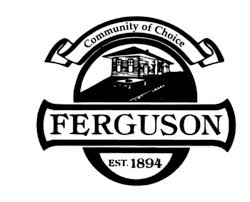Connections can matter.
Who you know. Who your parents were. What schools you attended. What’s on your résumé. Your curriculum vitae.
I’ve always liked to think we start life with a clean slate, on equal footing with the next person, but working for two decades at a wealthy private school has convinced me otherwise. Reading in the paper about the obstacle that race can be has convinced me otherwise. Connections don’t guarantee success, of course, but they can help.
John the Baptist was from “a good family.” He had plenty of connections with the wealthy Pharisees. Luke says that his parents were of the priestly class and his mother was descended from Aaron, the brother of Moses. He was familiar with the Temple establishment. He could have probably used these connections to advance himself and do some good in the world.
Instead, he renounces it all and lives in the desert with a bunch of ascetics who eat locusts and dress in tatters. In fact, no single figure in the Christian Scriptures has their appearance described in more detail than John! A dubious distinction, given the wardrobe. John is the “advance man” for Jesus, paving the way, calling for people to repent, for heaven’s sake. He called his listeners “vipers.”
Mary was the opposite: young, quiet, pious, subservient, obedient. She is the rose of the faith and we light her candle on Sunday.
Mary and John have a deeper connection than Elizabeth, Mary’s cousin, who is also the mother of John. John and Mary are key players in the lessons this coming Sunday.
So let’s go back to school:
Question: Whose words have been banned by five countries in the modern era?
A. John
B. Mary
C. Both
D. Neither
Question: Who rails against the powerful and says that God will level the playing field?
A. John
B. Mary
C. Both
D. Neither
Question: Which person’s family connections most advance their message?
A. John
B. Mary
Consider the following statement: Christmas is mainly for children.
A. True?
B. False?
There’s lots to talk about, to pray about, to be grateful for, even to be shocked about on Sunday, including the questions above.
See you in church. “Answers” provided then.
Barbara

